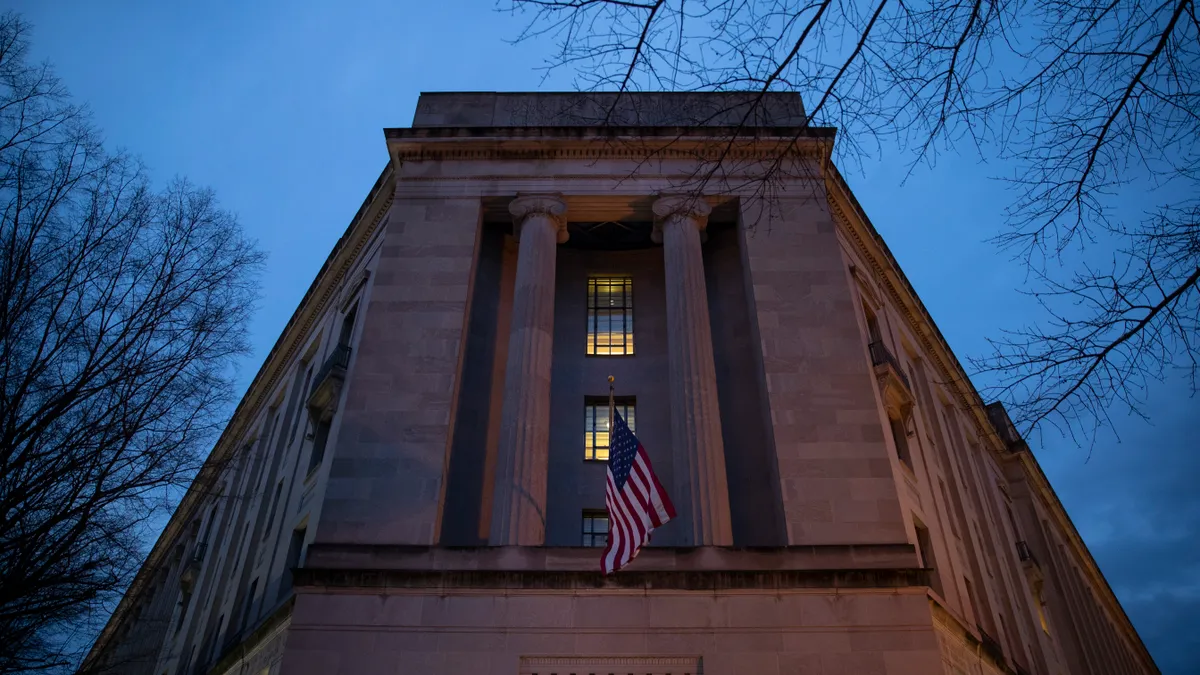The Justice Department (DOJ) will crack down on redlining with the launch of a new initiative representing the department’s "most aggressive and coordinated effort" to address the discriminatory lending practice, U.S. Attorney General Merrick Garland said Friday in a press conference.
The department's Combating Redlining Initiative will work in partnership with the Consumer Financial Protection Bureau (CFPB) and the Office of the Comptroller of the Currency (OCC) in an effort to end redlining, the practice of denying financial services on the basis of race or in low- to moderate-income neighborhoods, the agencies said.
"It will seek to address fair lending concerns on a broader geographic scale than the Justice Department has ever done before," Garland said.
Along with the new effort, the DOJ, CFPB and OCC announced a settlement totaling $5 million with Trustmark Bank over allegations the $17 billion-asset Jackson, Mississippi-based bank engaged in discriminatory lending practices from 2014 to 2018.
The DOJ said it opened its investigation after the OCC found instances of discrimination in its pattern of mortgage application and origination activity, branching history, mortgage loan officer structure and operations and marketing and advertising.
Under a DOJ and CFPB consent order, Trustmark will pay a civil money penalty totaling $5 million — of which $4 million will satisfy the OCC’s civil money penalty order and the remaining $1 million will be paid to the CFPB, the DOJ said.
"Trustmark has fully cooperated in this investigation and amicably resolved the allegations," the DOJ said.
To satisfy the DOJ and CFPB consent order, Trustmark agreed to invest $3.85 million over five years in a loan subsidy fund to increase mortgage lending opportunities to Memphis residents in majority Black and Hispanic census tracts and will devote $200,000 annually over five years to advertising, community outreach and credit and financial education services, the bank said in a statement.
The bank will also invest $400,000 in its community development partnerships to support services related to credit, financial education, homeownership and foreclosure prevention that benefit residents of majority Black and Hispanic census tracts in the Memphis market. The bank will also open a loan production office to serve the mortgage lending needs of residents in these neighborhoods.
"We fully cooperated with the agencies and have entered into these settlements to avoid the distraction of protracted litigation and because we share the common goals of breaking down barriers to home financing and exploring innovative ways to help residents of underserved areas achieve the dream of homeownership," Trustmark CEO Duane Dewey said in a statement. "We look forward to making continued progress on the lending initiatives and operational enhancements we began implementing six years ago."
More to come
Trustmark’s settlement is the first to be announced under the new DOJ initiative, and settlements with other entities are forthcoming, the department said.
"We are wasting no time getting to work," said Garland, adding the DOJ’s Civil Rights Division has several open redlining investigations. "Through partnerships with U.S. attorney's offices, the department expects to open more in the months ahead."
DOJ Assistant Attorney General Kristen Clarke said the new initiative will send a "strong message to banks and lenders that we will hold them accountable as we work to combat discriminatory race and national origin-based lending practices."
"We know well that redlining is not a problem from a bygone era but a practice that remains pervasive in the lending industry today," she said.
CFPB Director Rohit Chopra called Trustmark’s actions "egregious," but added the agency would also be paying close attention to "digital redlining."
"Technology companies and financial institutions are amassing massive amounts of data on each and every one of us, and using it to make more and more decisions about our lives, including loan advertising and underwriting," he said Friday. "And while machines crunching numbers might seem capable of taking human bias, out of the equation, that is not necessarily what is happening. Findings from academic studies and news reporting suggest serious questions about algorithmic bias."











